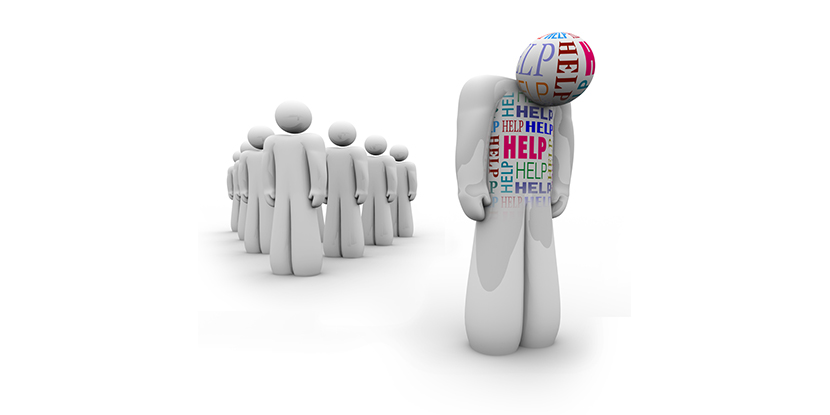Social phobia is also called social anxiety disorder. It is a mental health condition that is an intense fear of being watched or observed by someone. Such people suffer in many ways like their work is affected, children’s school is disturbed, intimidation in talking to strangers, the social circle gets effected, confidence shatters and in many other ways too. Making friends and keeping friends is even harder. But this phobia can be overcome by treatment when its symptoms and risk factors are known.
Social anxiety disorder negatively effects on the personality due to the negative thought that some will evaluate negatively if he\she meets with someone. That person depends on others’ points of view. He does not think anything positively and appear to be always conscious of everything and sometimes looks confused, stupid, and awkward or boring. Such a person tries to avoid social gatherings and does not experience new things out of fear. In this way, he never faces social performance situations.
Moreover, a socially phobic person tries to avoid performance situations and he fails to avoid, he faces anxiety or sometimes physical symptoms are also felt like nausea, sweating, heart rate increases or even full-brown attack is observed. Such people know their symptoms are unreasonable and illogical but due to their phobia, they keep on suffering such anxiety disorders.
Millions of people are suffering from social phobia worldwide as it is one of the most common phobias. Mostly it develops in teenagers. The diagnosed children are found suffering from extreme anxiety and extreme shyness.
Symptoms
A person with a social anxiety disorder is always uncomfortable in conditions where people are gathered. Such people are fearful and they have interference in daily routine.
Some of the main symptoms are:
- Consistent worry about some embarrassment, humiliation or self
- Extreme fear of interaction and talking to strangers
- Fear of apparently looking stress-induced or the fear of being observed with shaking legs or shaking hands.
- Avoidance of speaking in front of people out of fear of speaking something wrong.
- Trying to avoid becoming the center of attention.
- Avoid the situation of developing anxiety and fear.
- Do not spend time with people in order to avoid some flaws that might happen in interaction.
- Social phobic children show their symptoms by crying or getting tempered or by clinging parents or most of the time getting refused by parents. Symptoms become apparent when phobia gets severe.
Related risks
- Some phobias are genetic. They are transferred into the child if the social phobia is in biological parents or siblings. One is more likely to develop social anxiety disorder if a family member is already suffering from it.
- Childhood experiences have a great impact on a person’s personality. The rejection, bullying, humiliation, ridiculing or domestic violence tend to develop as social anxiety disorder. Change in family, negative events in life or mental trauma may be associated with social phobia.
- Some people are too shy and timid and when they face new situations and especially too many people, they react abnormally which leads to extreme temperament.
Image source link

















